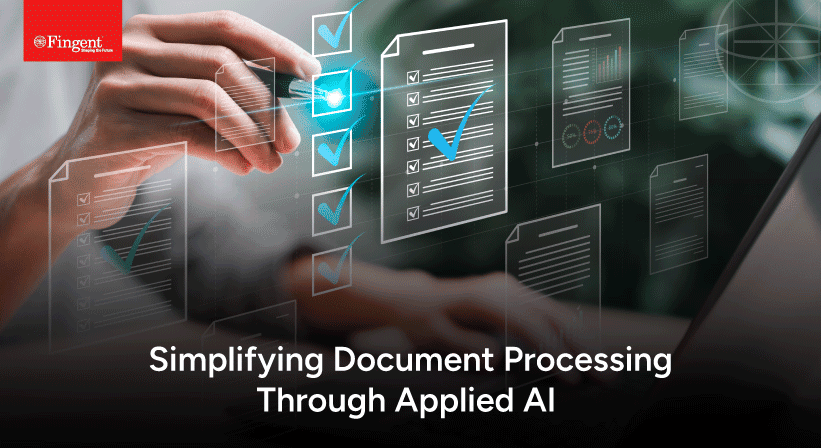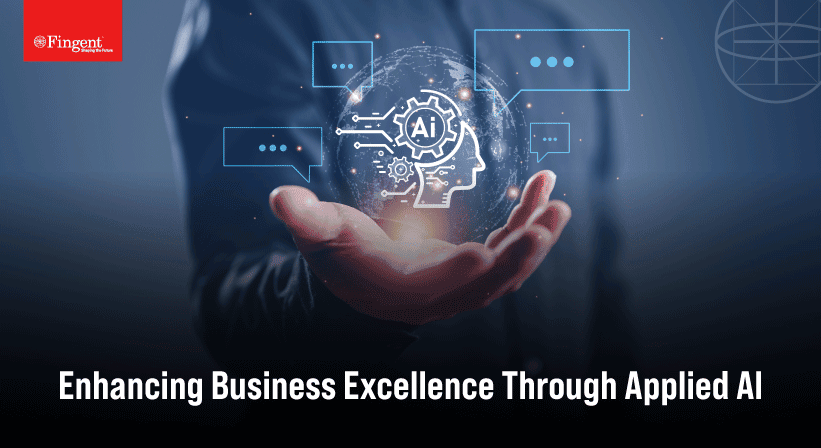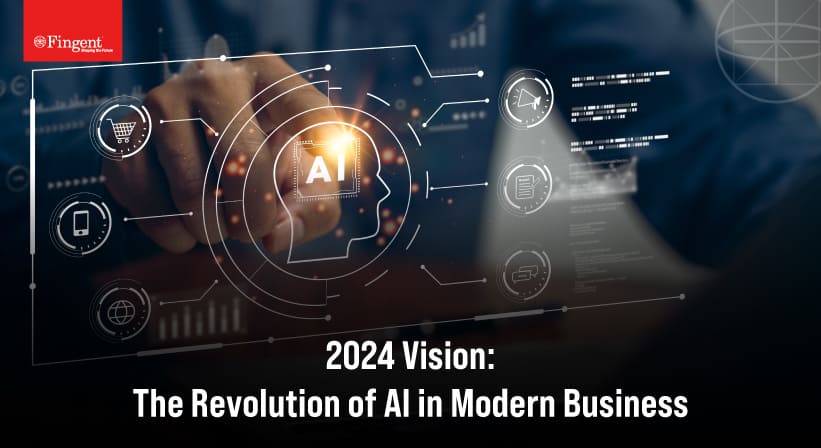A Leader’s Blueprint for AI Success
“Leaders, embrace AI! Make it your superpower!” – Robert Barber, Leadership Development Trainer and Executive Coach.
How Are Businesses Using AI?
The verdict is crystal clear—leaders today must embrace AI to stay ahead of the curve and survive in the rapidly evolving business landscape. AI can be like a GPS navigation system that guides you through unfamiliar roads. From predicting market changes to automating operations and bringing intelligent services, AI is paving the way for revolutionary business innovations. However, leveraging the best of AI needs crucial understanding and strategic planning. That’s why we have compiled a quick guide to help leaders pave the way for success with AI.
The benefits of AI for businesses are vast. One major advantage is its ability to automate repetitive tasks, freeing valuable human resources to concentrate on strategic initiatives. AI’s ability to extract valuable insights from large volumes of data is one essential element businesses can utilize to make better decisions. Many industries already use AI’s qualities to improve customer experiences and gain a competitive edge. For instance, in the healthcare industry, AI is being used to diagnose diseases more accurately and quickly. In the retail sector, AI-powered chatbots are enhancing customer service. Here’s a detailed view of how various industries use AI to enhance performance.
How is AI Used in Different Industries?
- Healthcare: AI-powered diagnostic tools can analyze medical data, evaluate a patient’s conditions, and recommend treatments. These tools assist healthcare professionals in accurate diagnosis and treatment planning.
- Finance: AI algorithms serve various purposes in finance. They are used for fraud detection, risk assessment, and algorithmic trading. This enables financial institutions to manage risks better and improve investment strategies.
- Manufacturing: AI-driven predictive maintenance systems are crucial in anticipating equipment failures. They can predict issues before they happen, reducing downtime and improving production efficiency.
- Retail: AI-powered recommendation systems personalize content and user experiences. Like a DJ, they create playlists based on listener preferences and moods! AI provides tailored suggestions, increases engagement, and boosts sales.
Plan Custom AI Business Solutions With Us!
Build Custom Healthcare Technology Solutions
That Caters To Your Unique Challenges & Boosts Patientcare Services.
How Can Businesses Strategize Success with AI?
In the quest for organizational success, the strategic integration of AI can be a game-changer. AI holds immense potential for businesses across industries. From streamlining operations to unlocking new opportunities for innovation, it can do it all. Let’s explore key strategies for strategizing and realizing success with AI implementation.
1. Identifying Potential Impact Areas for AI Implementation
Identify potential areas within business operations where AI can make a significant impact. This could include tasks that are repetitive, data-intensive, or require complex decision-making. An excellent example is AI-powered chatbots in customer service. They handle routine inquiries and free up human agents to focus on more complex issues. Similarly, AI-driven predictive maintenance systems help in manufacturing. They optimize equipment uptime and reduce maintenance costs.
2. Planning an AI Strategy
Create a good plan for using AI. Think carefully and make sure it fits with what your organization wants to achieve. Here are the key things to do:
- Assessment: Look closely at how things are done in the company. Find out what’s not working well and where AI could help.
- Goal Setting: Decide what you want to achieve with AI. Set clear goals that you can measure. It might be saving money, making more money, or making customers happier.
- Resource Allocation: Make sure you have what you need to make AI work. This includes financial resources, people with the right skills, and the right tools.
- Risk Management: Think about what could go wrong with using AI. This could be privacy problems or people not liking the changes. Figure out how to deal with these issues.
- Timeline: Plan out when you’ll do everything. Think about when the technology will be ready, when your company will be ready, and any rules you need to follow.
3. Identifying the Type of AI
AI encompasses a diverse range of technologies, each with its applications and capabilities. Some key types of AI are:
- Machine Learning: Machine learning teaches a computer to learn from examples instead of telling it exactly what to do. It can be used to predict the next move, suggest things one might like, and recognize what’s in pictures.
- Natural Language Processing (NLP): NLP helps computers understand and talk like humans. NLP does things like translating languages, enabling chatbots, and figuring out how people feel from what they say.
- Computer Vision: Computer vision helps computers understand and work with pictures and videos. It’s used in things like recognizing faces, finding objects in pictures, and helping cars drive themselves.
4. Aligning AI with Company Culture
Successful AI implementation requires more than just technology. It requires a cultural shift within the organization. Leaders must ensure that AI initiatives align with the existing company culture and ecosystem. Here’s what you must focus on:
- Communication: Communicate the benefits of AI adoption to employees at all levels of the organization. Address any concerns or misconceptions they may have.
- Training and Upskilling: Provide training and development opportunities. This will teach employees how to use new AI tools and ways of working.
- Collaboration: Encourage everyone to work together. Motivate them to share ideas and skills from different parts of the company.
5. Scaling and Driving New Business Value
Once AI initiatives are up and running, the focus shifts to scaling them effectively. This will help maximize their impact on business value. Strategies for scaling AI initiatives include:
- Iterative Improvement: Continuously iterate and improve AI models and algorithms. Use feedback and performance metrics.
- Integration: Integrate AI capabilities into existing systems and workflows. This will maximize efficiency and effectiveness.
- Expansion: Look for opportunities to expand AI initiatives into new areas or markets. Use what you have already learned.
6. Realizing Consistent AI Value
AI is like a detective that looks at lots of clues to figure things out. It can look at tons of data to find trends, anomalies, and things that might be risky for a business. To do this, you need to implement the following:
- Performance Monitoring: Monitor key KPIs to track how effective AI initiatives are. Identify areas for improvement.
- Feedback Loop: Establish a feedback loop to gather input from stakeholders and end-users. Incorporate their insights into future iterations of AI solutions.
- Adaptation: Remain agile. Adapt quickly to changes in the business environment, technology landscape, or regulatory requirements.
Case Study: How AI Helps A Legal Firm Simplify Claims Management
Albert Navarra and Ambika Sapra, co-founders of Sapra & Navarra, LLP are living proof of how AI can help leaders transform their business.
From one room, one computer, and no cases, they are now 50+ employees strong and growing stronger by the minute! Along with their determination and brilliant legal skills, a reason for their rising success is Ambit AI. Ambit AI is an AI Machine Learning program developed for them by Fingent. It simplifies and transforms the workers’ compensation claims processing experience.
Ambit AI seamlessly complemented their goals as certified specialists in Workers’ Compensation Law. It also helped them achieve satisfying business outcomes for their clients. They were able to reduce claim settlement times from years to days and settlement costs by over 50%!
The team now plans to scale Ambit AI to multiple insurance domains!
AI Cuts Average Case Settlement Time to 1-2 Days
How Fingent Can Help Drive Successful AI Projects
Fingent is at the forefront of delivering cutting-edge AI solutions. These solutions are tailored to solve complex business problems across multiple sectors, exemplifying Fingent’s capability to work with leaders to achieve their vision.
Fingent’s approach is rooted in a deep understanding of client needs. We foster a collaborative project management style and provide unwavering support post-implementation. Testimonials from satisfied clients highlight the transformative effects of Fingent’s AI solutions.
Stay up to date on what's new

Recommended Posts

08 May 2024 Financial Services B2B
AI Shaping the Future of Financial Services: Use Cases & Applications
As Dan Schulman, the CEO of PayPal once said, “We're not trying to reinvent the wheel; we're trying to perfect it.” Achieving perfection is no easy process. It is not……

18 Apr 2024 B2B
Applied AI For Document Processing
"It's becoming increasingly clear that AI is the future, and almost everything else is a sideshow." - World-renowned computer scientist Geoff Hinton AI has taken over almost every aspect of……

21 Feb 2024 B2B
Stepping The AI Revolution with Applied AI
“I am telling you, the world’s first ‘trillionaires’ are going to come from somebody who masters AI and all its derivatives and applies it in ways we never thought of.”……

10 Jan 2024 B2B
AI Trends Set to Transform Businesses in 2024
In the dynamic realm of modern business, the profound impact of artificial intelligence (AI) continues to unfold, reshaping industries and redefining conventional practices. As we step into 2024, the transformative……
Featured Blogs
Stay up to date on
what's new















 US
US Insurance
Insurance









































